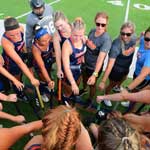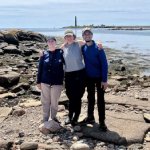
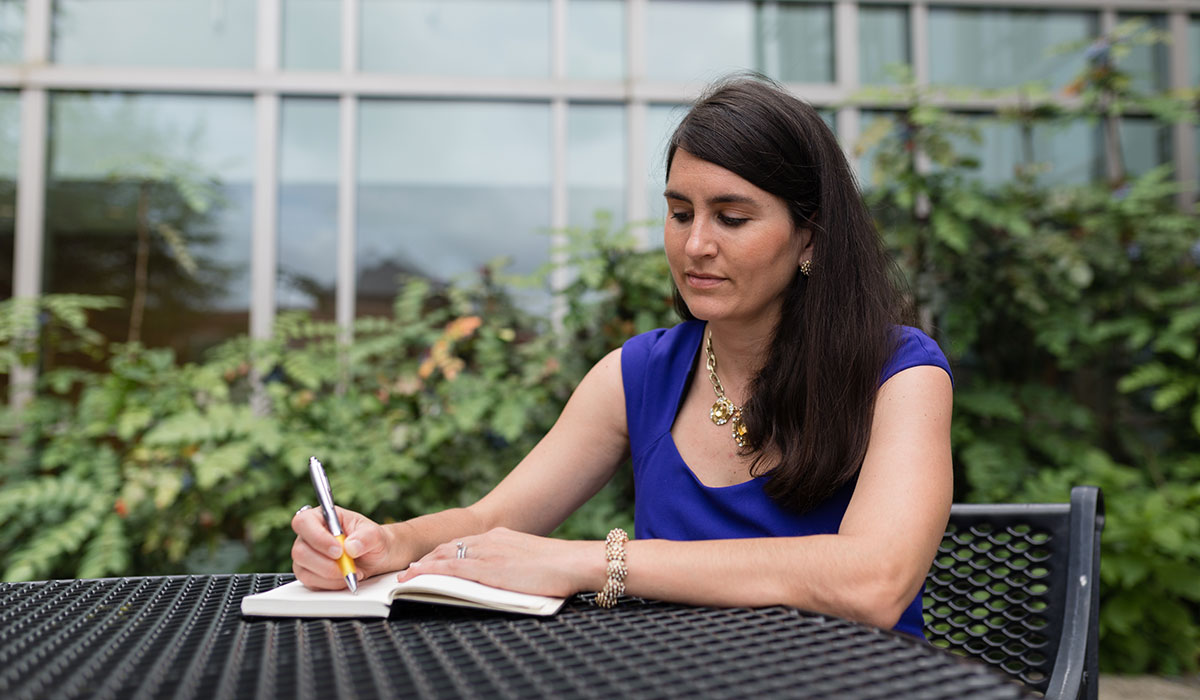
If you found a lost wallet, would you return it to its owner?
Would your answer depend on the wallet’s contents, such as a grocery list, keys, business cards, or money?
A report evaluating the tradeoffs between honesty and self-interest published by Science, a journal of the American Association for the Advancement of Science (AAAS), shared a surprising result. In contrast to classic economic logic, people were more likely to return wallets that contained larger, not smaller, sums of cash. The experiment, which distributed 17,000 wallets across 40 countries, showed the results were consistently high across the globe.
This study, which demonstrated a greater inclination toward altruism, is just one of many that excites Science Press Package Executive Director Meagan Phelan ’05. Overseeing all six journals in the Science family, she and her team serve as liaisons between scientists and journalists. Being able to effectively communicate not only the results of a complex scientific experiment, but also its implications for the broader community, is a skill rooted in her consistent drive for infinite discovery.
“I love learning,” Phelan said. “I also feel greatly compelled to serve the researchers who publish with us. That is the overarching theme, but I think the driving force has always been, ‘How can I continue to learn as much as possible?’”
Her mother might say that desire first surfaced in middle school, when Phelan took her parents’ recommendation to start internships early. She interned with a radiologist, a dentist, and a financial company. When she was 15, her parents took her on tours of JLG Industries, Pfaltzgraff, Harley-Davidson, and Merrill Lynch. Her mom also read to her employee biographies printed in the back of various companies’ annual reports, which illuminated intriguing career paths.
“I did not fully grasp the significance of this [then], but I think it actually was really influential,” Phelan said in reflection. “I was always very cognizant that having a lot of interests could lead to a rich life, and I think the internships helped with that.”
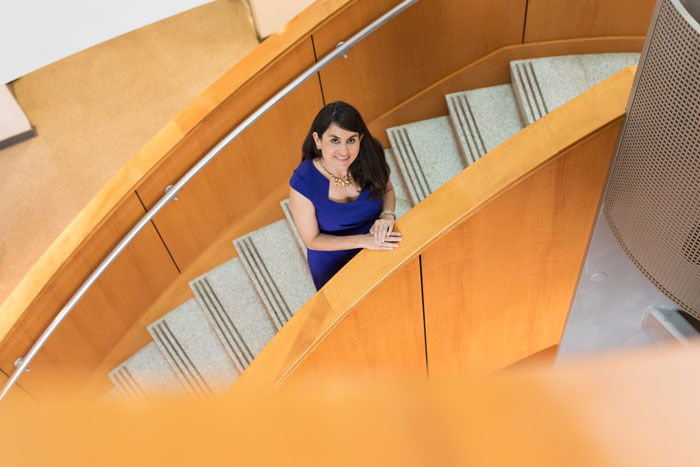
When she arrived at Gettysburg College in 2001, Phelan switched majors from chemistry to biology, minored in Spanish, engaged with several influential professors, and attended the annual meeting for the American Astronomical Society. She quickly realized she did not want to be pinned to just one scientific field. That’s when an opportunity arose that allowed her to truly meld her passions of science and writing. In launching a science writing column in the Gettysburgian, she launched her career.
“[I] recognized [in college] that communicating science well is a job that I would love and would let me engage with so many different disciplines,” said Phelan, who also competed in track and field and cross country.
“In order to ask questions of scientists to better understand their work and communicate it, you have to be curious, tenacious, and aware of what’s going on in the world more broadly,” continued Phelan, whose Twitter bio reads “curious human.”
“What implications does that have for my community? How hard was it to get these different disciplines to come together? How meaningful is that? Those are questions that I probably ask because I was inspired by this education.”
In 2006, Phelan earned a master’s degree in science writing from Johns Hopkins University. Her first job was serving as a senior writer and editor for Memorial Sloan-Kettering Cancer Center. In between stints with AIR Worldwide, a catastrophe-modeling and risk assessment company, she received a Fulbright scholarship in 2008 to study at the University of Valencia with Juan Antonio Raga, conducting research on the morbillivirus in small cetaceans in the Mediterranean Sea. Then in 2013, Phelan joined AAAS, where she now reviews dozens of papers each week to present to 6,000 reporters around the world.
“What she and her office do has never been more critical than it is today,” Biology Prof. Kay Etheridge said. “The future of humans and most other species on the planet depends upon the world understanding the science behind what is happening with climate change, emerging diseases, and other timely issues that demand our response.”
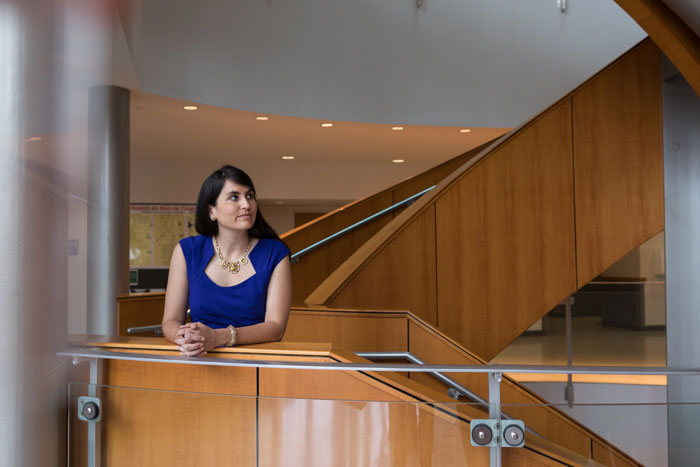
Some days might be challenging, but they’re rewarding, Phelan said. In managing a team of 10 remotely—traveling to Washington, D.C., once each week for a day that starts at 3:45 a.m., ends around 10 p.m., and features 10-14 meetings with editors—the importance of accurate and comprehensible science writing comes to the forefront.
“It’s the feedback we get from authors all over the world, who say, ‘Working with this team brought us more coverage, more accurate coverage, and broader coverage than we ever thought, which has in turn helped our research rise to the level of policy-making. That impact, which is something we get to see weekly, stands out,” Phelan said.
The impact Phelan has made personally isn’t lost on the Gettysburg College community, either.
“Many people claim to have a passion for something, but do not realize the hard work and frequent frustration that are part of the mix when trying to see their dreams come to fruition,” Etheridge said. “Meagan is not where she is today because of luck; she has one of the most important science writing jobs that exist because she earned it. She became fluent in a second language, she traveled, she took career risks, and she put her curiosity and skills to work. She also kept her eyes open for opportunities, and did not wait for something to drop into her lap. And while doing all of this, she continued to hone her craft.”
Thanks to that continuous curiosity, which flourished at Gettysburg College, Phelan has discovered the true crux of effective communication in the world of science.
By Megan Miller
Photos by Shawna Sherrell
Posted: 07/26/19

